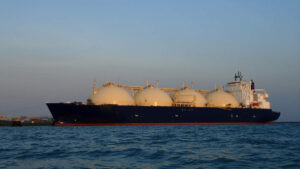Carnarvon is cashed up for Dorado development while other players look to test Australia’s offshore potential

Divesting half of its 20% stake in the Dorado and Pavo fields has put Carnarvon in a strong position. Pic: via Getty Images
The Dorado and Pavo oil and gas fields in the Bedout sub-basin offshore Western Australia are some of Australia’s most significant discoveries in recent times, a point that has been proven by Carnarvon Energy (ASX:CVN) completing its partial divestment to Taiwan’s CPC Corporation.
OPIC Australia – a wholly-owned subsidiary of CPC – will pay Carnarvon a total of US$146m ($226.4m) for a 10% interest in the Bedout assets.
This comprises an upfront payment of US$56m on completion of the transaction, and a further carry of US$90 million towards Carnarvon’s share of the future Dorado development costs once the Santos-led (ASX:STO) joint venture makes a final investment decision.
Carnarvon managing director Adrian Cook told Stockhead that CPC’s interest in Dorado and Pavo was due to the “world class quality of the assets, high value come production and future opportunities presented by the Bedout sub-basin”.
The Dorado and Pavo fields are estimated to contain combined gross best estimate (2C) contingent resources of 189 million barrels of liquids and 401 petajoules of gas.
For Carnarvon, the transaction is transformational as it grants a level of financial liquidity – with $181m in cash and $138m in future contribution to Carnarvon’s Dorado development costs – that the vast majority of companies can only dream of.
Cook noted that with the entry of CPC, the company’s immediate focus is on working with both CPC and Santos to achieve a final investment decision as soon as possible.
When queried by Stockhead, he added that while the company was focused on the development of existing fields and further exploration of the Bedout sub-basin, it would certainly consider the right opportunity to invest in another asset if it presented itself at the right time.
Dorado development
Phase 1 development of the Dorado field will see a single wellhead platform (WHP) in 90-metre water depth, connected to a nearby floating production storage and offloading (FPSO) vessel via sub-sea flowlines and control lines.
This will be capable of handling up to 100,000 barrels of liquids per day with gas and liquefied petroleum gases reinjected into the field before being assessed for subsequent production in a Phase 2 development.
Additionally, the Pavo field will be tied into the Dorado facilities once production from the Dorado field begins to naturally decline to ensure production rates are maintained.
Phase 2 will entail export to either domestic and/or LNG facilities subject to the volume of discovered gas resources in the Bedout Sub-basin at that time.
Carnarvon is also continuing the formal process to part fund its remaining share of the Dorado development using a broad range of potential capital sources including traditional senior debt facilities and alternative funding options, for which it has received a strong level of market interest.
Australian offshore exploration
Dorado and Pavo are likely the best undeveloped discoveries that are present in Australia’s offshore regions, but other companies are also progressing their plans for offshore exploration.
In July, Melbana Energy (ASX:MAY) estimated that the Hudson carbonate target that straddles WA-544-P and NT/P87 offshore Western Australia and the Northern Territory respectively could host mean Prospective Resources of 395 million barrels of oil or 2 trillion cubic feet of gas.
While isolated carbonate build-ups host some of the world’s largest oil reservoirs, it is an untested play type in Australia.
Melbana had previously identified the Beehive prospect – also a carbonate build up target – in the adjacent WA-488-P licence and had sold the licence to a US major EOG Resources, which plans to drill a well as early as 2024.
It has since reprocessed and reinterpreted legacy 2D data that have allowed it to identify the conceptual target at Hudson.
The company plans to farm out some of its 100% interest in the licence areas to fund the acquisition of a 3D seismic survey to further de-risk the prospect.
Meanwhile, US supermajor ConocoPhillips has started work on an environmental plan to secure approval for a drilling campaign of up to six wells in the Otway Basin offshore Victoria and King Island, Tasmania.
This drilling will seek to find commercially viable natural gas reserves to meet local domestic demand.
Related Topics

UNLOCK INSIGHTS
Discover the untold stories of emerging ASX stocks.
Daily news and expert analysis, it's free to subscribe.
By proceeding, you confirm you understand that we handle personal information in accordance with our Privacy Policy.








